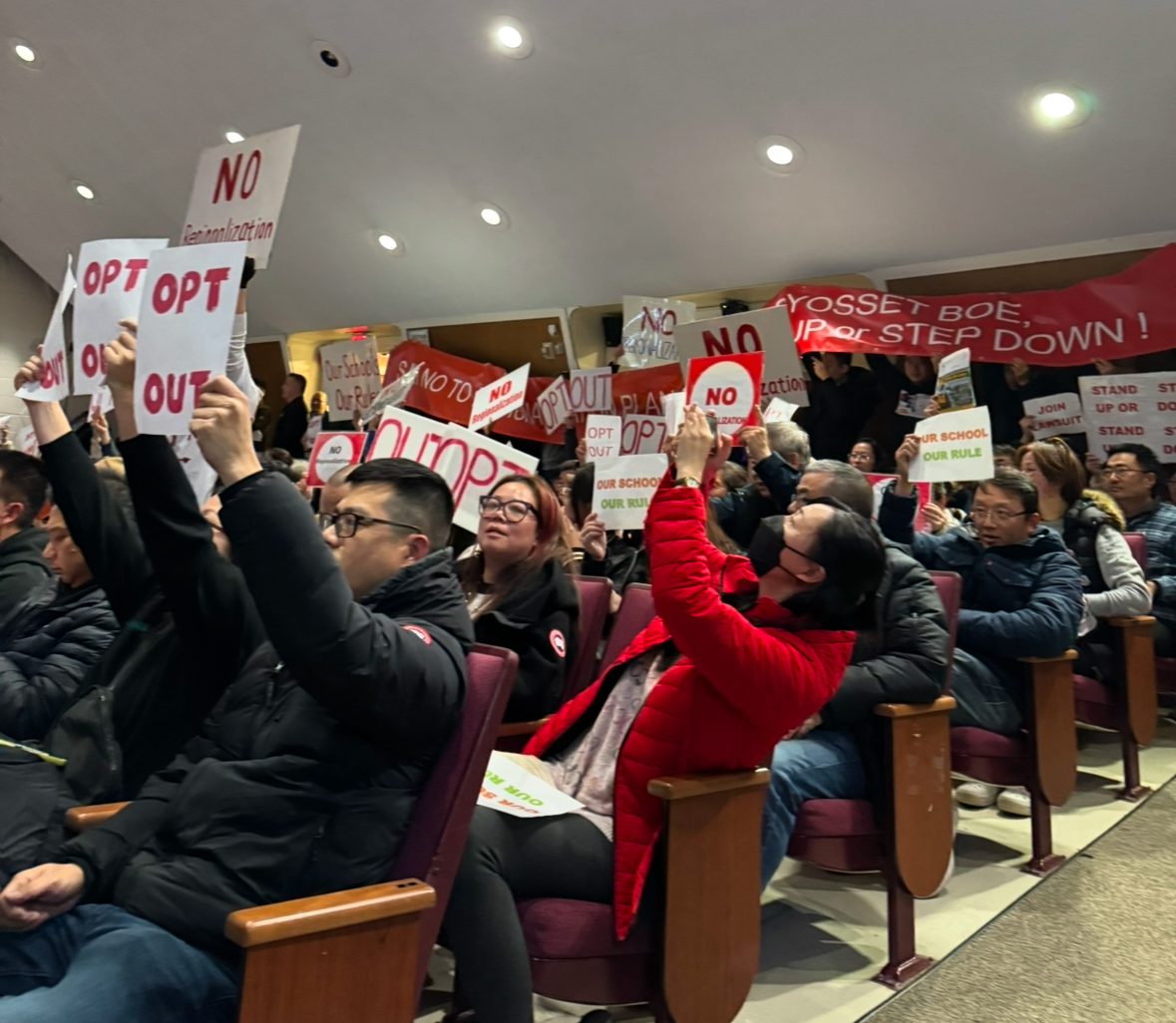The Syosset Board of Education opted out of the state’s Regionalization Initiative and reserved its right to take legal action if forced to participate in a unanimous vote at Monday’s meeting.
The district said it would oppose any state action that threatens district control and resources, the board said.
“We’re seeking to [oppose] the undermining of local control,” said Brian Grieco, school board vice president.
The board was supported by Syosset community members who attended the meeting with signs that read “Opt Out,” “No Regionalization,” “Dismantle NYSED” and “Syosset BOE Stand Up or Step Down.”
A committee of the state Board of Regents voted unanimously on Monday to change the language of a regulation to confirm that regionalization would be voluntary and that districts would have the option of not participating in the planning process.
The change came in response to an outcry on Long Island by parents, educators and officials concerned that the regionalization plan was not voluntary and would reduce local control over schools.
Syosset Superintendent Thomas Rogers told attendees the state changed problematic language in the state’s provision.
Local officials were concerned because the initial plan said the state and BOCES superintendent could “compel” district participation. That verb has since changed to “request.”
“It is notable to me that they got rid of the word ‘compel’ and they replaced it with the word ‘request,’” Rogers said.
“It is particularly notable that the department, in its proposal, removed its own authority, not just the authority of the BOCES superintendent,” Rogers said.
According to the provision, school districts must consult with the board of education and send a letter to the state education department by Jan. 15, Rogers said.
Rogers said the state education department will not accept any regionalization plan that involves a district that has previously opted out.
There will be no involuntary participation, he said.
But Grieco said there are “simply no downsides” to opting out of regionalization.
The Education Department introduced the regionalization initiative in an effort to close regional gaps in teacher recruitment, advanced course offerings and funding and aid.
The state requested a Strengths & Weaknesses Tool to gather initial information on each district.
Opponents said the initiative is a threat to local control because the state is giving too much power to the state and to the BOCES superintendent, who is the regional representative for local districts.
Despite the change in language, the Syosset board approved two resolutions to opt out and protect the district from future regionalization plans.
Greico said the opt out notice should include “language to reserve all of our rights to oppose any other forms of regionalization that could be tied to this regulation.”
“I think the preservation of our rights and remedies in our opt-out notice is important,” he said.
The first resolution opts the district out of participation, refuses the submission of the Strengths & Weaknesses Tool and reserves the right to oppose future regionalization initiatives.
The second resolution reserves the right for legal action is participation is required against the district’s will.






























